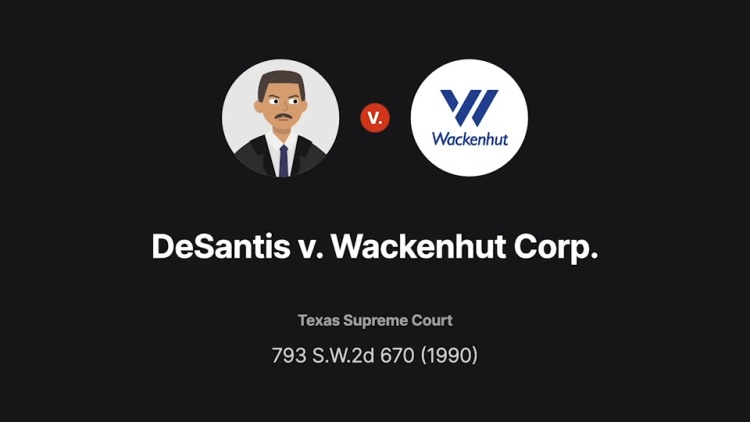DeSantis v. Wackenhut Corp.
Texas Supreme Court
793 S.W.2d 670 (1990)
- Written by Lauren Petersen, JD
Facts
Wackenhut Corporation (Wackenhut) (plaintiff), headquartered in Florida, provided security guards to businesses across the nation. Wackenhut hired Edward DeSantis (defendant) to manage its Houston office. At that time, DeSantis signed a noncompetition agreement prohibiting him from competing with Wackenhut within a 40-county area for two years after his employment at Wackenhut ended. The agreement also contained a provision stating that Florida law would govern any disputes. While working at Wackenhut, DeSantis did not develop specialized goodwill with any Wackenhut customers. Approximately three years later, DeSantis resigned from Wackenhut. DeSantis immediately created a company called Risk Deterrence, Inc. (RDI) (defendant). RDI provided security consulting and security guards. DeSantis sent letters notifying businesses of RDI’s services. Approximately half of the letters went to Wackenhut clients, but the letters expressly disclaimed any interest in interfering with Wackenhut contracts. Within six months, one Wackenhut client terminated its contract with Wackenhut to contract with RDI, and another planned to do the same. Wackenhut sued DeSantis and RDI, seeking to enjoin them from violating DeSantis’s noncompetition agreement and seeking damages. Applying Florida law, the trial court determined that DeSantis was breaching his noncompetition agreement. The court enjoined him from competing with Wackenhut, and RDI from employing him to compete with Wackenhut, for the noncompete period. However, the court reduced the geographic area to the 13 counties deemed reasonably necessary to protect Wackenhut’s interests. The court of appeals affirmed. The Texas Supreme Court granted review to determine which state’s law governed and whether the noncompetition agreement was enforceable under that law.
Rule of Law
Issue
Holding and Reasoning (Hecht, J.)
What to do next…
Here's why 911,000 law students have relied on our case briefs:
- Written by law professors and practitioners, not other law students. 47,100 briefs, keyed to 997 casebooks. Top-notch customer support.
- The right amount of information, includes the facts, issues, rule of law, holding and reasoning, and any concurrences and dissents.
- Access in your classes, works on your mobile and tablet. Massive library of related video lessons and high quality multiple-choice questions.
- Easy to use, uniform format for every case brief. Written in plain English, not in legalese. Our briefs summarize and simplify; they don’t just repeat the court’s language.





